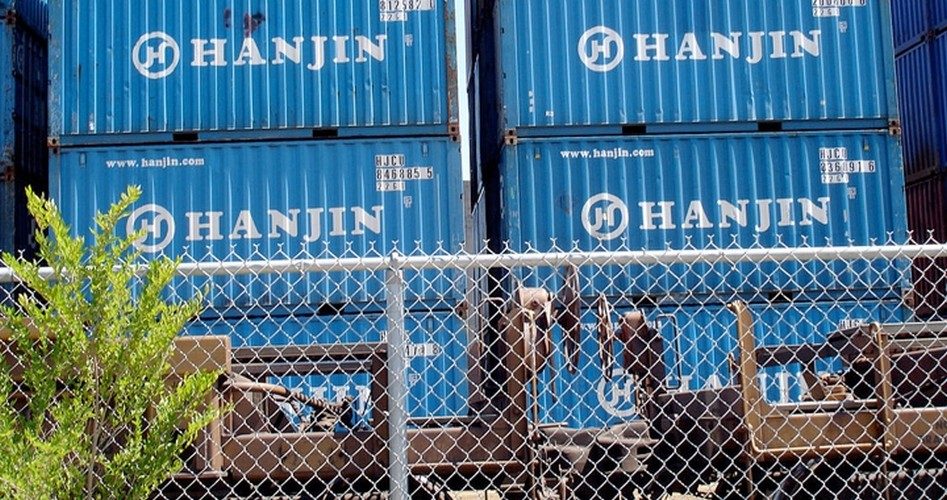
South Korea’s Hanjin Shipping was the world’s seventh-largest container shipping company, moving (until last week) 100 million tons of cargo on its 200 cargo ships from manufacturers to retailers across the globe. Last week, following years of losses as the global economy has slowed, Hanjin declared bankruptcy. That move stranded 90 of those ships as off-loading companies refused to unload them over concerns that they wouldn’t be paid.
Even an offer of $90 million from what’s left of Hanjin (including $36 million from the personal assets of its chairman) fell far short of the necessary $543 million estimated to unload all of its ships that are now circling ports around the world.
Concerns are mounting that the delay in offloading (retailers are scurrying to make other arrangements to get access to their goods in time for the holiday season) will impact Black Friday shopping and well into the Christmas season. Samsung, for example, has an estimated $40 million worth of refrigerators and other appliances, along with Galaxy smartphones and other “visual” products, waiting to be unloaded.
The offloading is being complicated by creditors seizing some of those ships as collateral for loans they’ve made to Hanjin over the years.
What’s surprising is that Hanjin’s bankruptcy has caught the national media by surprise. The Wall Street Journal published a major article on Hanjin’s difficulties on Wednesday, managing to say nothing about Hanjin being the first example of what is likely to be a series of similar bankruptcies occurring all across the international supply chain.
As Adam Hayes, a chartered financial analyst, noted back in January, there were a whole host of factors leading to a global recession, including:
The “European Situation” consisting of the bailing out of the PIIGS nations (Portugal, Ireland, Italy, Greece and Spain) repeatedly by the European Central Bank and the IMF;
The “Chinese Bubble” now imploding thanks to overbuilding of ghost cities, over capacity in basic industries like steel and cement, resulting in a dramatic “official” slowing of China’s economy from double digits to 7% or more likely, much lower;
The “Student Loan Problem” in the United States where $1.2 trillion of those loans are hampering young people from otherwise engaging in economic activities like marrying and buying homes and cars;
The “Central Banks’ problem” consisting of their inability to reduce interest rates further in the nonsensical Keynesian attempt to stimulate moribund economies around the world, when interest rates are already at, or below, zero; and
The “Economic Data problem” showing patterns unnervingly similar to those that appeared just before the start of the Great Recession: retail sales dropping, factory orders declining, GDP growth barely positive, export growth slowing and corporate profits declining.
This was followed in February by Citigroup’s conclusion, looking at the available data, that global growth might have been as low as two percent year-over-year in the final quarter of 2015 which, if it remains at such depressed levels, would qualify as a global recession, according to Citigroup’s own definition.
Then, in March, the 20-member Organization of Economic Cooperation and Development (OECD) reported that the global “outlook points to easing growth in the United Kingdom, the United States, Canada and Japan [while] similar signs are also emerging in Germany.” A closer look at the report revealed that of the 20 countries in the OECD, only France, Italy, and India were showing any signs of economic life.
The July Cass Freight Index confirmed the slowing global economy as well, noting that the slowdown has been years in the making and coinciding, incidentally, with the start of the string of losses by Hanjin that finally sank the shipping company into bankruptcy last week.
Hanjin is likely to be the first of many such declarations as the global economy continues to shrink, along with those involved in the supply chain. As Warren Buffett famously said, “Only when the tide goes out do you discover who’s been swimming naked.” In April, Hanjin applied for more assistance from its creditors to keep itself afloat as the global economy continued shrinking. When the banks finally refused any more assistance last week, Hanjin admitted that it had been, financially speaking, swimming naked since at least 2011.
And Hanjin has not been swimming alone, as the media will likely be reporting in the months to come.
A graduate of an Ivy League school and a former investment advisor, Bob is a regular contributor to The New American magazine and blogs frequently at LightFromTheRight.com, primarily on economics and politics. He can be reached at [email protected].



